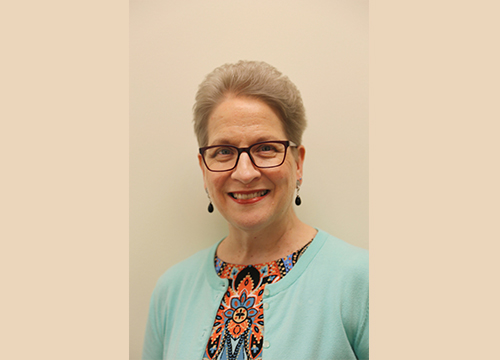32nd Sunday in Ordinary Time 2 Mc 7:1-2, 9-14; Ps 17:1, 5-6, 8, 15; 2 Thes 2:16-3:5; Lk 20:27-38
I grew up in a house with a library of “Reader’s Digest Condensed Books.” These collections of then current novels (edited down to their essential plot points) allowed writers to get their work out to a larger audience and to build a fan base for their future literary efforts. (I became a fan of the “Condensed Books” during visits home, when I would extract one of these handsome, hard-bound volumes from the shelf and plow through several artfully abridged novels in a weekend.)
The Second Book of Maccabees, from which comes this Sunday’s first reading, clearly states its origin as a “digest,” having been condensed from a five-volume work focused on a tumultuous period of Jewish history. It says, “…we have aimed to please those who prefer simple reading, as well as to make it easy for the studious to commit things to memory” (2 Mc 2:25). As an editor, I sympathize with this author, who writes, “…the task, far from being easy, is one of sweat and of sleepless nights” (2:26).
The book deals with the conflict between Jewish identity and fidelity to the Torah, i.e., the law given by God to guide the people in covenant living, and the seemingly irresistible influence of Greek culture, language, philosophy, and especially, polytheistic religion.
With this large-scale conflict as backdrop, disagreements arose within the Jewish community. Some of the people saw value in certain aspects of Greek culture, provided the freedom to practice their Jewish religion remained intact. Others saw any concession to Greek influence as a “slippery slope” leading to destruction. Eventually, under Antiochus IV Epiphanes, freedom of religion no longer included Jewish practice. Faithful Jews experienced oppression and violent persecution.
2 Maccabees makes for grim reading, both grisly and graphic. Thankfully, this Sunday’s episode has undergone yet another condensation, one that leaves out the details of torture suffered by the seven brothers. The biblical text includes a stirring tribute to the mother that is well worth the read: “Most admirable and worthy of everlasting remembrance was the mother, who saw her seven sons perish in a single day, yet bore it courageously because of her hope in the Lord” (2 Mc 7:20). This woman of faith not only exhorted each of her sons with the assurance that “the Creator of the universe…in his mercy, will give you back both breath and life” (2Mc 7:23), she also shared their fate.
For us, this story of a mother and her sons demonstrates how belief in the resurrection made martyrdom possible, even before the birth of Christ. These brave souls show us what it means to “believe” in the biblical sense of the word — to set one’s heart on, to stake one’s life on, to risk one’s life for.
Verses selected from Psalm 17 form today’s response, with an expression of innocence and hope worthy of the faithful martyrs of 2 Maccabees. The final line points to the hope of resurrection with the words, “…on waking I shall be content in your presence.”
Another story featuring the untimely demise of seven brothers appears in the Gospel and leads up to a trick question intended to trap Jesus. The Sadducees propose the convoluted scenario of one woman marrying a succession of brothers to demonstrate that belief in the resurrection of the dead conflicts with the law of Moses.
In response, Jesus provides a glimpse of resurrected life in the coming age. Those who rise will not need to marry (and procreate to live on through their descendants), because they will no longer die. He challenges the Sadducees with the testimony of Moses himself, who met the Lord (self-identified as “the God of Abraham, the God of Isaac, the God of Jacob”) in the burning bush, and finally silences his opponents with the irrefutable insight, “and he is not God of the dead, but of the living, for to him all are alive.”
Melanie holds a master’s in pastoral studies from Loyola University, New Orleans.

